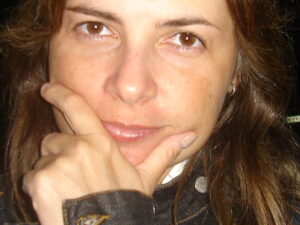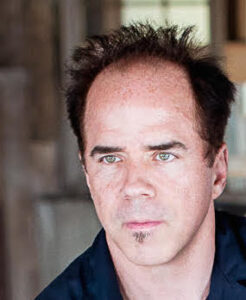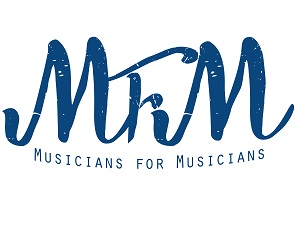The Art of Hearing what you See – Composing Music for Film, Television, Theatre, and Dance
Review by Dawoud Kringle
On Sunday, March 7th, 2021, Musicians for Musicians, in collaboration with the Manhattan Producers Alliance presented its newest webinar; The Art of Hearing what you See – Composing Music for Film, Television, Theatre, and Dance. The keynote speakers were Eleni Lomvardou and Christopher North.
 Lomvardou is a native of Athens, Greece. She is a composer who has written music for numerous international theatrical productions, television game shows and prime time series aired on Greek national television. She has also composed music for short films and documentaries that have received awards in American and International Film Festivals. Lomvardou has also collaborated with New York choreographers, and written music for dance works associated with Festivals in New York and Washington, D.C.
Lomvardou is a native of Athens, Greece. She is a composer who has written music for numerous international theatrical productions, television game shows and prime time series aired on Greek national television. She has also composed music for short films and documentaries that have received awards in American and International Film Festivals. Lomvardou has also collaborated with New York choreographers, and written music for dance works associated with Festivals in New York and Washington, D.C.
 North is a composer, songwriter, and multi-instrumental performer. While working most notably as a film composer, he has also composed and written for orchestra, theater, dance, and children’s television. He has played bass for Quincy Jones, The Dixie Chicks and Rosanne Cash, and performed both in orchestras and on Broadway. North is also an Assistant Professor in the Berkeley College of Music Songwriting Department, and taught at the 92nd Street Y.
North is a composer, songwriter, and multi-instrumental performer. While working most notably as a film composer, he has also composed and written for orchestra, theater, dance, and children’s television. He has played bass for Quincy Jones, The Dixie Chicks and Rosanne Cash, and performed both in orchestras and on Broadway. North is also an Assistant Professor in the Berkeley College of Music Songwriting Department, and taught at the 92nd Street Y.
MFM’s Roger Blanc was the moderator.
After a brief introduction, North introduced the topic of movie trailers. Lomvardou introduced the trailer for Kim Mihiri; a Turkish film she’s scoring. She spoke about how she needed to blend western music (mostly jazz) and Turkish music to underscore the necessary moods of the documentary. She discussed the various technical and artistic aspects the music needed to address.
North moved the discussion to the topic of scoring for animation. He played a clip of a documentary on blues musicians and the civil rights movement called Two Trains Running, which he’s presently working on. He used a single note played on a banjolele to create tension.
A question was posed: How important is it to have an across-the-board character theme to the music of a project? North mentioned that in order to compose good music for film, you have to have a lot of knowledge of music, collaboration, and film. He also mentioned that in pre-production, it’s important to clearly define your role in the film and what’s expected of you. Lomvardou added that it’s important to communicate with the director early in the project, in order to give the director what he / she needs. She added that directors usually have no idea how to accurately communicate what they want; so it’s necessary to psychologically dissect them to provide the musical needs of the project.
Lomvardou showed a clip from another of her projects; a sci-fi film called Shadows of the World. The music used strings and vocal samples to fit the surrealist mood of the clip.
Then North showed a clip from the film Unpainted, which he scored. This is a silent film wherein the music is the only sound; there is no dialogue. This puts considerable pressure on the composer.
Throughout the webinar, North and Lomvardou explained the various aspects of how to use music to enhance film. More clips and trailers, and dance performance they’d worked on were shown to demonstrate their work and methods. Some discussion was also devoted to the art of composing music for dance performances.
Personally, I enjoyed the webinar, and highly recommend it. And the music Lomvardou and North presented is first class by even the most exacting standards. However, I think time should have been spent on the business and financial side of making music for film, theater, and dance. Nothing was said about how one may find projects to score, how to promote oneself as a composer, and how to approach the economic aspects of being a film / theater / dance composer. This is a vitally important thing that should not be overlooked.
Watch webinar video here: https://youtu.be/m-_dtv4BjCY

